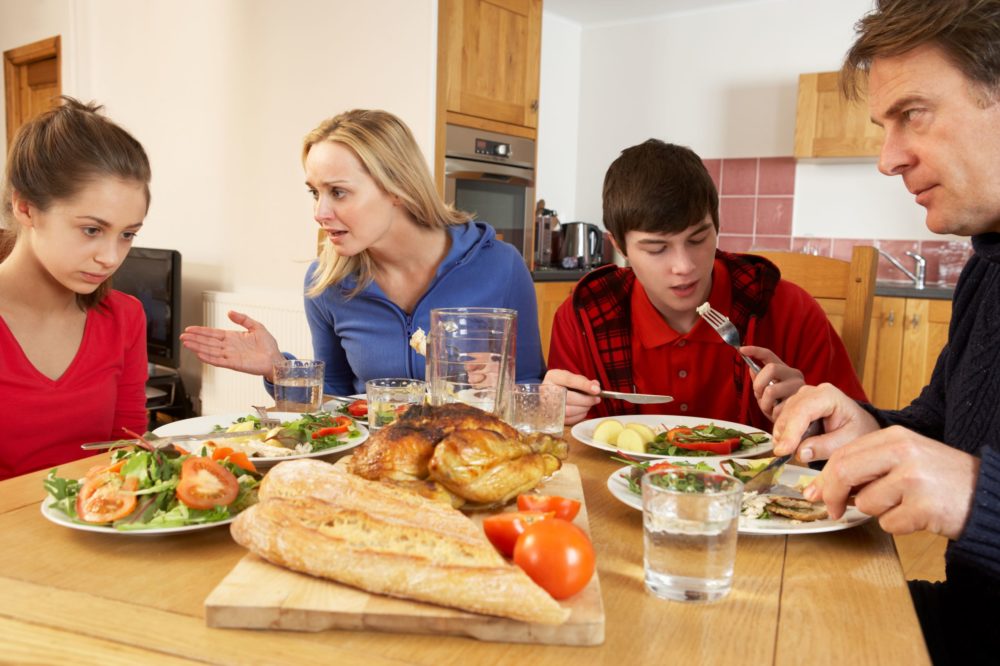Over half of UK parents are battling with their offspring to get food down them at mealtimes, it has been revealed. The study by Vitabiotics’ Wellt
Over half of UK parents are battling with their offspring to get food down them at mealtimes, it has been revealed.
The study by Vitabiotics’ Wellteen shows how 54% of mums and dads are finding themselves disputing with their children when it comes to getting them to eat healthy food, with 43% often finding illicit sweet or fast food wrappers in their child’s bedroom.
The figures also reveal how parents feel they have “lost control” of their children by the age of 13, with many left wondering what their kids are eating, doing and who they are socialising with, especially once they have started secondary school.
In Yorkshire and Humberside, over 1 in 5 parents (20.7%) fear they have a decreased authority over their children, which is the highest in the country followed by London (17.56%), and Wales (15.38%).
The results of the Vitabiotics study suggest that their thoughts may well be justified, as almost 40% of parents believe their children eat more junk food such as cake, chocolate and crisps than they did when they were the same age.
Moreover, more than half of parents argue with their teens about their diet, with the need to eat more fruit and vegetables topping the list.
A spokesperson for Wellteen vitamins said: “With a bigger range of snacks to choose from, it is no surprise many parents think their offspring are indulging in more junk food than they did at the same age.
When our children are young, it’s easy to know exactly what they are doing, who they are with and what they are having to eat and drink.
Even when they start school and nursery, you still get a good idea of what they are doing from teachers and notes sent home.
But as they get older and start to do things on their own, it can be harder to keep such a close eye on them, especially when it comes to their diet.
As they travel to school by themselves or head out unaccompanied with friends, they have the opportunity to eat and drink foods they know they wouldn’t usually be allowed at home.
As a result, parents are left trying to guess what they have had to eat and whether or not they are getting everything they need.”

The research, carried out via OnePoll.com also found the lack of control means 63% of parents worry about their children getting all of the vitamins they need for a healthy diet.
Researchers found 12% of parents admitted to having no idea how many chocolate bars their kids are eating, while one in 10 struggle to keep tabs on the number of packets of crisps they tuck into.
The same number couldn’t say how many glasses of fizzy drink are consumed while more than one in 20 have no idea if their children are eating the fruit and veg they should be.
And almost one in five teens have smoked a cigarette, something just 16% of parents think is the case.
A spokesman for Wellteen added: “Teens are among those with the worst diets of any group, according to government figures.
That might be because they are rebelling from their parents and testing out their newfound independence, alongside the pressures of a hectic schedule of studies, sport and socialising.
Good nutrition is vital for growing brains and bodies. While a healthy diet is an absolute priority and basis for good health, Wellteen supplements can safeguard nutritional intake at a time of life when unfortunately it might not always be a priority in teenage lives.”
Needing to eat more fruit and veg is the most common row, followed by parents wanting teenagers to drink more water and consume fewer fizzy drinks. Tucking into fewer chocolate bars and sitting at the dinner table as a family more often are also among the everyday arguments parents have with their children about food and drink.



















































































































COMMENTS